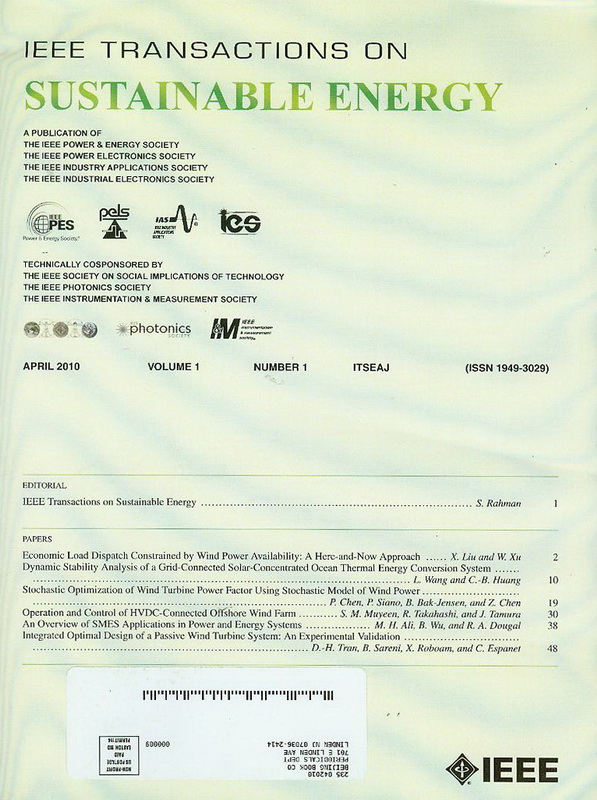基于深度强化学习的风-电-水-蓄混合能源系统长期与短期协调调度
IF 10
1区 工程技术
Q1 ENERGY & FUELS
引用次数: 0
摘要
对于风力-光伏-水力-蓄能混合能源系统(WPHS-HES)来说,传统的长期策略往往会损害短期调节能力,导致广泛的资源浪费和严重的电力短缺。因此,本文提出了一种新的框架,该框架将短期运行特征复杂地嵌套在长期运行规则中,以同步WPHS-HES的多时间尺度调度。我们的方法的基石是长期调度作为一个马尔可夫决策过程(MDP)的新公式。它与通过在每个MDP步骤中嵌入的最佳模型开发的短期发电计划无缝集成。为了实现计算效率和可靠性,我们提出了一种混合数据模型驱动的解决方案,利用数据驱动和模型驱动方法的协同优势。通过利用深度强化学习,我们的方法显著简化了长期决策变量,同时通过混合整数线性规划确保严格遵守短期操作约束。在运行的WPHS-HES上进行的经验模拟验证了我们的方法比传统的场景简化和鲁棒优化技术更有效。结果令人震惊,可持续弃电率从11.67%降至0.63%,减载率从3.3%降至0.69%,从而为复杂混合动力系统的智能能源管理树立了新的标杆。本文章由计算机程序翻译,如有差异,请以英文原文为准。
Long-Term and Short-Term Coordinated Scheduling for Wind-PV-Hydro-Storage Hybrid Energy System Based on Deep Reinforcement Learning
For wind-photovoltaic-hydro-storage hybrid energy systems (WPHS-HES) grappling with the complexities of multiple scheduling cycles, traditional long-term strategies often impair short-term regulation capabilities, leading to extensive resource waste and critical power shortages. Thus, this paper introduces a novel framework that intricately nests short-term operational characteristics within long-term operating rules to synchronize multi-timescale scheduling for WPHS-HES. The cornerstone of our approach is the novel formulation of the long-term scheduling as a Markov Decision Process (MDP). It is integrated seamlessly with short-term generation schedules developed through an optimal model embedded at each MDP step. To achieve computational effectiveness and reliability, we propose a hybrid data-model-driven solution that harnesses the synergistic benefits of both data-driven and model-driven methodologies. By leveraging deep reinforcement learning our approach significantly streamlines long-term decision variables, while ensuring strict adherence to short-term operational constraints through mixed integer linear programming. Empirical simulations on an operational WPHS-HES validate the superior efficacy of our method over traditional scenario reduction and robust optimization techniques. The results are striking that it achieves a reduction in sustainable energy curtailment from 11.67% to 0.63% and slashes the load shedding rate from 3.3% to 0.69%, thereby setting a new benchmark for intelligent energy management in complex hybrid systems.
求助全文
通过发布文献求助,成功后即可免费获取论文全文。
去求助
来源期刊

IEEE Transactions on Sustainable Energy
ENERGY & FUELS-ENGINEERING, ELECTRICAL & ELECTRONIC
CiteScore
21.40
自引率
5.70%
发文量
215
审稿时长
5 months
期刊介绍:
The IEEE Transactions on Sustainable Energy serves as a pivotal platform for sharing groundbreaking research findings on sustainable energy systems, with a focus on their seamless integration into power transmission and/or distribution grids. The journal showcases original research spanning the design, implementation, grid-integration, and control of sustainable energy technologies and systems. Additionally, the Transactions warmly welcomes manuscripts addressing the design, implementation, and evaluation of power systems influenced by sustainable energy systems and devices.
 求助内容:
求助内容: 应助结果提醒方式:
应助结果提醒方式:


